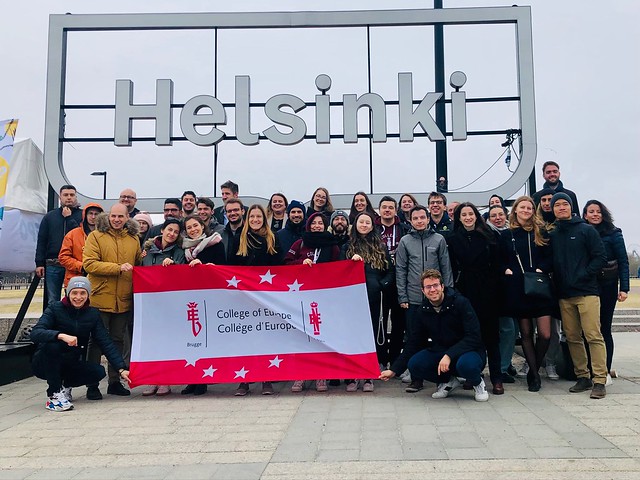The College of Europe in Natolin is located in Poland, a country close to the Eastern frontier of the European Union, which makes it an ideal starting point for the exploration of the political and socio-economic impact of the EU in Central and Eastern Europe and in the EU's neighbourhoods.
The study trips to countries of the EU or EU’s neighbourhood offer a unique opportunity to acquire, assess, and confront knowledge related to a given geographical area through the prism of the impact that the EU integration process and the EU external relations may have on it. The study trips are designed to provide students with information, encounters, lectures and other academic experiences, which cannot be delivered by traditional means on the campus. In this respect they represent an irreplaceable added value to the academic programme.
Study trips are tailor-made and vary every year depending on academic priorities and external circumstances.

First semester study trip
In the first semester, a study trip in the region is organised for all students during which they meet with academic experts, journalists, politicians, representatives of the intellectual, cultural and business circles, as well as EU representatives. The purpose of the first semester study trip is to broaden the scope of knowledge acquired and to help students understand the historical, political, economic and social influences that shape the region.
In order to prepare students academically for this experience, they benefit from a set of preparatory lectures organised before departure, in which academics, diplomats, and EU officials introduce them to different aspects of the given study trip’s academic programme. Many students use the study trip to develop their academic interests in the context of their coursework throughout the year and/or the Master’s thesis.
Second semester study trip
The second semester usually features several trips devised according to Natolin’s specialisations and current trends, from which each student can choose. For instance, students go to Belgium and Luxembourg to acquire first-hand experience of European institutions, or to a European Neighbourhood country in order to further enhance knowledge of external policies. During these trips students can apply the knowledge gained in the first and second semesters and carry out research for their Master's theses.

